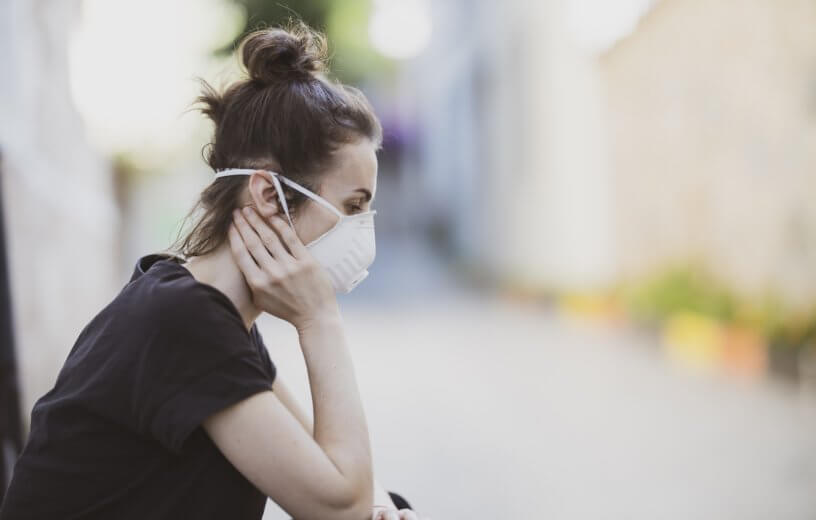CAMBRIDGE, England — Individuals who are currently dealing with, or already overcame, COVID-19 symptoms are more likely to develop general psychiatric disorders and feel lonely. That’s the main finding of a new study just released by the Cambridge Judge Business School. Women and young adults appear to be most vulnerable to these developments.
Prior research points to the pandemic’s effects on specific mental health issues in populations, such as insomnia or anxiety. However, this study is among the first to conduct an extensive, nationally representative investigation into citizens’ overall mental health. In all, 15,530 U.K. residents were surveyed for this project.
Regarding ways to mitigate the psychiatric health risks associated with COVID-19 symptoms, researchers say that people who have a job or live with a partner enjoy more robust protection against both general psychiatric disorders and loneliness.
Measuring mental states
According to the study’s authors, before this project, we knew “little about the broader psychological impact of the pandemic on a wider population.
“Only focusing on specific disorders underestimates the psychiatric burdens of the pandemic in more subtle forms and overlooks the needs for psychiatric care of the people who have not been clinically diagnosed,” the study reads. “Although the minor psychiatric disorders are often less urgent concerns of the public health policies, they are not negligible given the large proportion of the population that have been affected.”
General psychiatric disorders were assessed among respondents according to the 12 items listed on the General Health Questionnaire. The test is a widely used tool for measuring various aspects of one’s mental state, ranging from depression to confidence and happiness. All participants were also asked about how lonely they had been feeling over the previous month.
“Loneliness is linked to long-term health outcomes including all-cause mortality, so public health policies need to be aware of the (mental) health consequences of the disease control measures,” the authors write.
Link between COVID-19 symptoms, mental health struggles
Just under 30% of surveyed participants scored a “4” or higher on a five-point scale measuring general psychiatric disorders. Meanwhile, 35.86% of respondents admit they “sometimes or often” feel lonely.
In diving into those stats a bit further, researchers say that respondents who have or had COVID-19 symptoms were much more likely to score high on the psychiatric disorder scale and report feeling lonely.
“People with current or past COVID-19 symptoms were perhaps more likely to develop general psychiatric disorders because they are more anxious about infection, and their greater loneliness may reflect the fact that they were isolated from family and friends,” says co-author Senhu Wang of the Centre for Business Research at Cambridge Judge, in a release.
Additionally, women and adults between the ages of 18 and 30 show a higher risk of experiencing these problems. The research team theorizes that this finding suggests these demographics face harder challenges than others. It’s more likely that their lives were disrupted to a greater extent by the coronavirus pandemic than others.
“Future research and public health policies need to move beyond specific psychiatric disorders to attend to the general psychiatric disorders and loneliness of a larger proportion of the population,” the study says. “They need to pay special attention to vulnerable populations including women, the younger, the unemployed, those not living with a partner, and those who have or had COVID-19 symptoms.
“A pandemic like COVID-19 could exaggerate social disparities in mental health in subtle ways, calling for research on effective interventions such as mindfulness, mediation-based stress reduction and timely provision of psychiatric services,” researchers conclude.
The study is published in Psychiatry Research.
Like studies? Follow us on Facebook!
